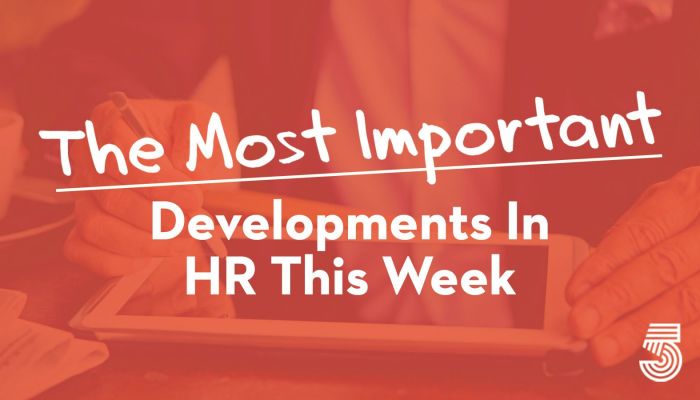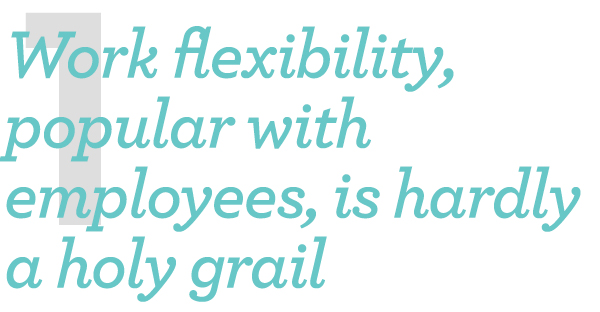
As demand roars back across the U.S. economy and workers are flush with pandemic savings, the little guy is suddenly wielding more power. Zillow has said it is allowing most employees to permanently work remotely, betting such a policy will yield the best talent. Facebook also said earlier this month that all full-time employees who can do their jobs remotely would be able to do so more permanently with permission. Shopify, Twitter, Dropbox, Instacart, and Slack, among others, have announced permanent remote policies for many of their employees. Airbnb and Pinterest recently terminated sizable San Francisco leases. Employees definitely want more flexibility. The trendy notion of the “Great Resignation,” recently coined by Anthony Klotz, associate professor of management at Mays Business School at Texas A&M University, posits that when employees are forced back into the toil of a commute and nine-to-five office job, many will be driven to quit. A widely cited Prudential Financial survey from March found 1 in 3 U.S. workers wouldn’t want to work for an employer that requires them to be on site full time. Prudential Vice Chairman Rob Falzon said in an interview with Axios that the potential for an ensuing talent war keeps him up at night. WSJ
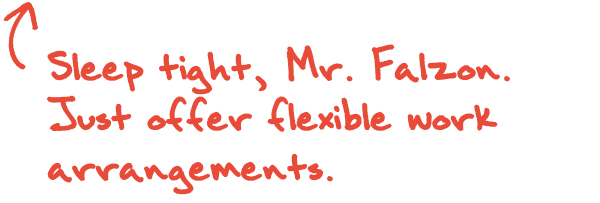
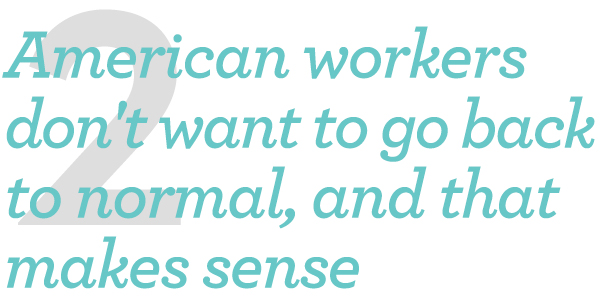
Johnny Paycheck sang “Take this job and shove it” in 1977. Today, it may well be the mantra for the post-COVID workforce. Getting “back to normal” in the American jobs market won’t cut it for everyone. Especially in retail and hospitality, where “normal” was an army of low-wage workers juggling two or more part-time jobs to pay the bills. The past 15 months has been a reckoning for everyone. More people are quitting their jobs than any time in the past 20 years, according to the Bureau of Labor Statistics. It’s a sign of confidence in finding a new job as millions look for better opportunities in new industries. Today, as the engine of the American economy revs back to life, it’s not as simple as plugging workers right back into the jobs they left. Instead of applying to work for someone else, a record number are starting their own businesses. As of May, 2.5 million new business applications have been filed in 2021, according to the Census Bureau. That’s already more than half of the businesses formed in 2020. CNN Business

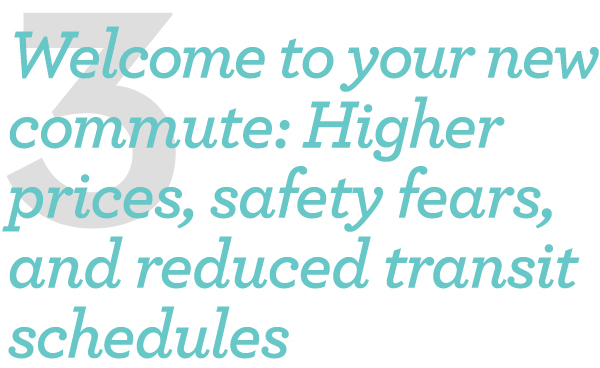
Workers called back to their office are facing new commuting hurdles as they contend with higher costs, less public transit, and new anxieties. The percentage of white-collar workers who have returned to the office at least a few days a week has slowly increased from 17 percent to 28 percent from April 2020 to May 2021, according to a Gallup poll. Coming into the office has familiar sights — a coffee mug with pens left in the same spot, the familiar sight of drop-down ceilings and fluorescent lights, and the faces of co-workers who have also returned. Over the summer, many workplaces are encouraging workers who want to come back to the office to do so, with hopes and expectations that more will follow in the fall. It’s a return to something closer to normalcy. But there are, of course, adjustments. One of the first issues that recalled workers have to figure out is their new commuting schedule — or whether they want to ride public transit at all. NBC News
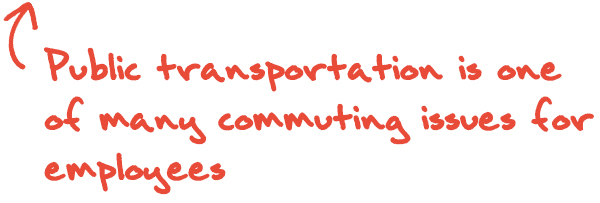
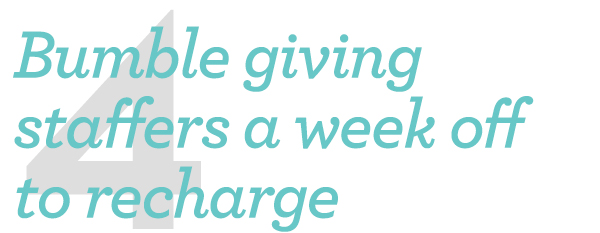
Bumble is giving its staff a week off to recharge and combat burnout. “As vaccination rates increase and restrictions ease, we wanted to give our global teams a paid week off to rest and refresh after what’s been an incredibly challenging time for everyone,” a Bumble spokesperson told NBC News. All 750 employees of the company will be getting a week off. The company will continue its normal operations on June 28. Bumble has employees all over the world in Moscow, London, Austin, Texas, Barcelona, Spain, Sydney, and Mumbai, India. Concerns have risen around burnout among employees due to the changing work environment from the pandemic this past year. Bumble, the dating app where women have to message first, has grown into one of the most popular dating apps with its CEO becoming one of the few self-made billionaires. Bumble has been working with other dating apps to promote vaccines by adding “vaccination badges” to its app and other incentives. The Hill

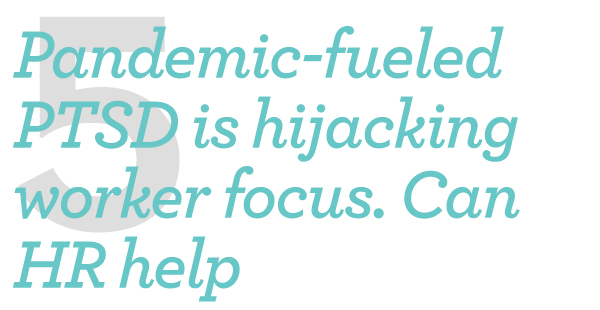
Pandemic-fueled trauma is driving a dramatic decline in employee focus and contributing to continued worsened mental health, especially among the nation’s youngest and oldest workers. According to the latest Mental Health Index: U.S. Worker Edition, the risk of post-traumatic stress disorder was up 36% between February and May 2021 and is now 55% higher than it was before COVID-19. “During the pandemic, people faced their mortality, the mortality of their families; it changed everything that we know. I think it’s had a profound impact on our emotional wellbeing,” said Charles Lattarulo, creator and global director of Healthy Minds at American Express. Sustained attention has declined 24% since April and is now 59% lower than pre-pandemic levels. Three main things employers can do is maintain flexibility, closely examine and rethink their programs and benefits — like leave policies or employee assistance programs — to make sure they’re helping workers enough, and increase focus on promoting health and safety in the office, said Drew Holzapfel, adviser to One Mind at Work. Human Resources Executive







